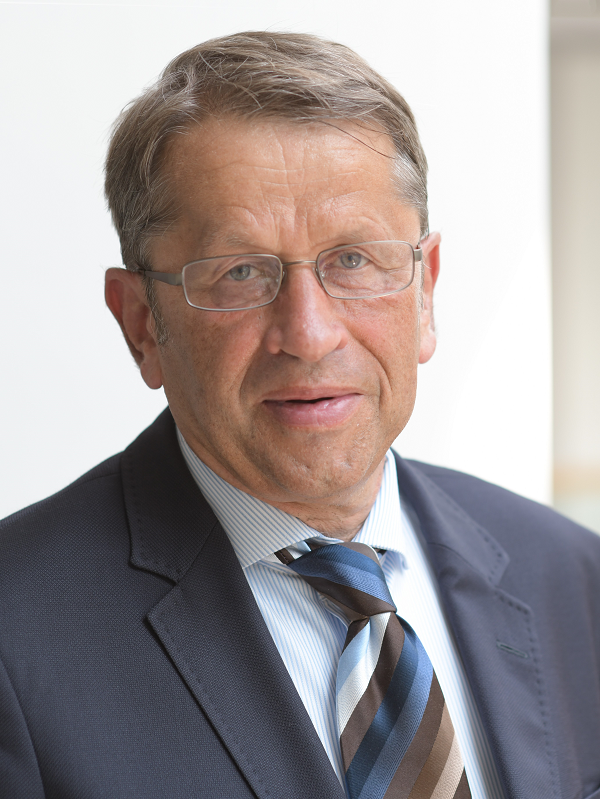Interview | Prof. Dr. rer. nat. Heyo K. Kroemer, Chief Executive Officer of Charité – Universitätsmedizin Berlin
Pharmacologist Prof. Dr. Heyo K. Kroemer has been Chief Executive Officer of Charité – Universitätsmedizin Berlin since September 1, 2019. In his previous academic career, among other things, he held the Chair of General Pharmacology at the Ernst-Moritz-Arndt University of Greifswald and was full-time Dean and spokesman of the Board of the University Medical Center Goettingen. In recognition of his scientific achievements, Prof. Kroemer is a member of the Leopoldina, the Berlin- Brandenburg Academy of Sciences and Humanities and the German Academy of Science and Engineering as well as of numerous scientific committees. In October 2022, he was appointed spokesman for the Healthcare Industries Cluster Berlin-Brandenburg - HealthCapital. We spoke with him about challenges for medicine and the healthcare industry as well as the potential of the German capital region.

Where do you see the current challenges for medicine and the healthcare industry?
Medicine and the healthcare industry face a variety of challenges. For the healthcare industry, one of them is competition. There is a high potential for innovation today, which can be seen in that fact that it is now possible to understand and to treat many diseases in medicine, for which this was only possible with difficulty until recently. That’s why it’s important to keep pace with this progress, so as not to lose touch. There are also challenges of a fundamental nature. The German healthcare system has proven itself during the Corona pandemic, but deficits have also become apparent. From my point of view this primarily includes digitalization that needs to be greatly improved. Another point is the demographic change, which is accompanied by a sharp decrease in the available workforce. This will be particularly noticeable in medicine and the healthcare industry. There are only two ways to counteract this: on the one hand, by increasingly relying on digital solutions and, on the other hand, by trying to reduce the number of people who fall ill by prevention.
Why is the capital region predestined here to develop innovative solutions and products?
The German capital region has everything it needs to develop innovative solutions and products. One important point relates to the competition for labor already mentioned. The region and Berlin, in particular, is a very attractive place to live and work and in my view it will continue to attract many young people for years to come. Another point is the diversity of expertise already available, both in the public-academic sector and in the private sector, which – combined with the people who are here – makes for highly innovative work.
Sometimes the comparison with Boston on the Spree is made – what is still missing in Berlin and Brandenburg?
In my view, Berlin can certainly develop in the direction of a second Boston. I believe in the field of biomedicine, the metropolitan region even has the potential to occupy a leading position in continental Europe. Boston also started small once and Berlin has developed very well in recent years and is catching up strongly. However, in order to continue to shape this process positively, further prerequisites must be created. For example, I think that more close cooperation between the individual actors must be realized. This has indeed increased and improved in recent years – both in terms of collaboration between the academic institutions, as is evident, for example, at the Berlin Institute of Health, the Max Delbrück Center and Charité. As well as in terms of cooperation between academic institutions and the private sector, for example, in the planned Center for Cell and Gene Therapy of Charité and Bayer. Nevertheless, such collaboration can still be expanded further. It is also important to find closer and newer forms of joint work between academic institutions and the private sector. What is still lacking in some areas are monetary resources. Here we should make better use of public financing opportunities.
Finally, a more personal question. If you weren’t manager of the largest university hospital, what area of medicine would you like to be doing research in right now?
I would do research in the field of pharmacology and personalized medicine. I have already dealt with these fields over a long period of time in the past and they would also be the subject fields that would interest me the most now.
Prof. Kroemer, we thank you for this interview and we look forward to working with you as spokesman for the Healthcare Industries Cluster Berlin-Brandenburg.



